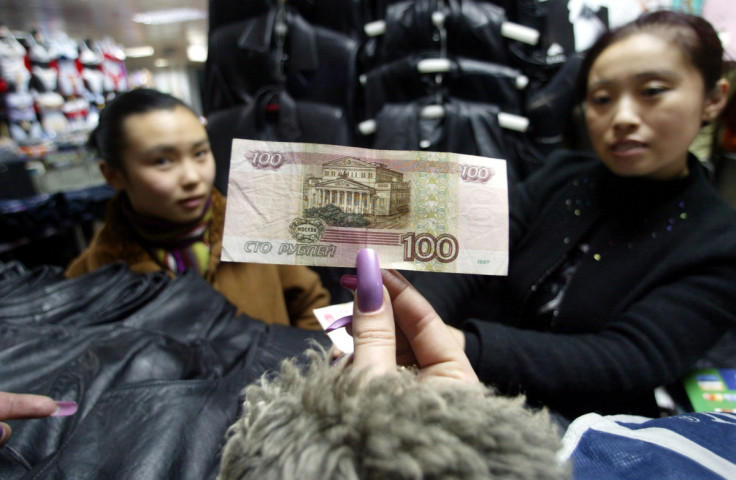Ruble Nears Record Low Against Dollar on Fears of Russia Invading Ukraine

The ruble has been declining ever since fresh tensions emerged late June between Russia and Ukraine while Western powers tightened economic and trade sanctions against the Russian Federation.
Recent data prints reveal increasing fundamental challenges for the economy: the way forward for the Russian currency is indeed towards the uncharted territory.
USD/RUB rose to a high of 36.31 on 7 August, its highest since 16 April. That means the record high of 36.88, touched on 3 March, is just half a ruble away.
US Defense Secretary Chuck Hagel on Wednesday said that the massive Russian troop buildup on the border with Ukraine may be an indication that Kremlin really means an invasion.
The US President Obama says that things have not reached that far and hopes the sanctions will force Putin to choose peace as they have "ground the economy to halt".
Russia's economic growth slowed to 0.9% in the first quarter from 2.0% growth in the previous quarter according to the April release. Preliminary estimates of the second quarter growth will be out on 11 August.
The country has been seeing slower growth since the first quarter of 2012 when it clocked a 4.8% expansion.
Unemployment rate, however, is also on a declining trend, which should be a comfort. But pressure on trade balance is on the rise with international trade sanctions starting to impact.
The surplus narrowed slightly in May to $18.28bn, as per the latest data print, and the upcoming releases are likely to reflect the damage done by its troubled international relations.
Industrial production growth has also fallen in June to 0.4% from a near two-year high of 2.8% in May.
Markit said on 5 August that the seasonally adjusted HSBC Russia composite output index rose from 50.1 in June to 51.3 in July, the highest in 2014 so far, but the research firm warned of challenges ahead.
"Don't get carried away by optimistic data this time. The improvement of manufacturing activity last month doesn't look sustainable to us amid weak export demand on the back of geopolitical tensions," said Artem Biryukov, HSBC's economist for CIS & Baltics.
"The July results probably don't accumulate in full the respondents' reaction on the Western sanctions against Russia, imposed by the EU and the US in end- July."
Ukraine's hryvnia is down more than 27% against euro so far this year, though it has improved from the record low of 17.9 in mid-April to 15.6/euro by 8 August.
© Copyright IBTimes 2024. All rights reserved.






